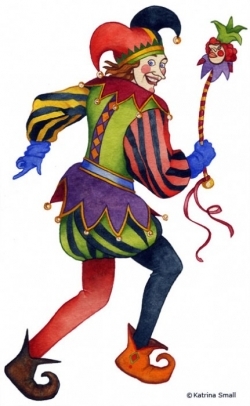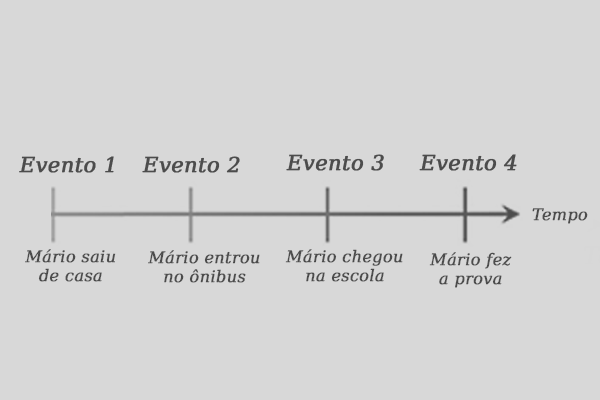
the jester was a artist hired by European courts in the Middle Ages to amuse the kings and his entourage. As a clown, he was considered comical and often unpleasant, for grotesquely pointing out the vices and characteristics of society.
In addition to making the court laugh, he also recited poetry, danced, played an instrument, and was the ceremonialist at parties. His figure was characterized by exaggeration, excess being one of his main characteristics, both in gestures, in words, and in clothing.
The fool originated in the Byzantine Empire, and at the end of the Crusades he became a common figure in European courts. But it didn't take long to disappear, which occurred in the 17th century. The jester wore gaudy, colorful uniforms and bizarre hats with rattles attached.
Jester can also be called a buffoon, from the Italian buffone.
In English, jester can be translated to court jester, only jester or yet fool (word for fool). In the French courts it was called fou du roi.
Among the tarot cards there is the jester figure, but whose card name appears as "The Fool" or "The Fool". In English it is "
The Fool", and in French, for the Tarot de Marseille, "Le Fol". The fool card in the tarot means the search for experiences, being careful with irresponsibility and innocence.In the deck of playing cards, the "joker" card, or the "joker" in English, features a figure dressed as a jester. But the symbology of the joker is different from the jester, as he is a character related to what kills and not to the clown's humor.
It is this characterization that inspired the famous villain of the same name, Joker, enemy of Batman in movies and comic books, and likewise the Harlequin.
The Jester was an employee hired by the court and his job was to amuse the King. Some fools even sat at the banquet table with the King and his guests, and were free to say things to monarchs that other members of the court would not dare.
There have been cases in history of court jesters who became involved with members of the royal family. It is said that there is only one case where it ended in tragedy, in 16th century Spain, when the jester was murdered after becoming involved with the princess. The jester is also an important character in the pieces of Shakespeare, such as Rei Lear and A Noite dos Reis, in addition to giving name to Verdi's opera Rigoletto.
Jester today is also used as an expression to refer to someone with silly, laughable attitudes, who only serves to distract and amuse, who doesn't take anything seriously. The idea of the jester is currently seen in a pejorative way, as someone without content or without seriousness. "So and so was a jester, he was at every party, he made everyone laugh, but no one believed him."

